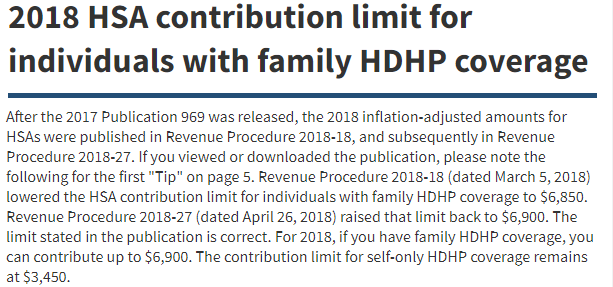This question was submitted by HSA Edge reader Deb. Feel free to send in your question today to evan@hsaedge.com.
I will be purchasing high deductible medical insurance on Sept. 1 of this year. I will qualify for Medicare on Sept. 1 of next year. Being that is only 11 months, would it be best to prorate the $3400 for 11 months for 2017 taxes in order to avoid a penalty, or would it be better to prorate each year (2017 and 2018) separately?
HSA’s and Medicare are very entangled as some of the Medicare rules can lead to over-contribution. I would urge you to further research this and apply it to your situation.
Please see my article: Medicare Part A Retroactive Coverage and HSA’s.
Basically, there is a clause in Medicare Part A that applies if you sign up for Medicare after your 65th birthday. In those cases, your Medicare coverage will retroactively apply up to 6 months prior to that date it truly began. Weird and crazy law. The problem is having Medicare coverage makes you HSA ineligible, so if you contributed to your Health Savings Account for those months it can lead to excess contributions.
Best case is this does not apply to your situation and your upcoming Medicare coverage truly beings on September 1st of 2018. Worst case it is will retroactively begin on March 1st, 2018.
As such, this limits your contribution amounts for 2017. I do not recommend using the Last Month Rule to contribute more in 2017, since you may end up failing the Testing Period in 2018 if Medicare kicks in. For 2017, you can safely contribute 4/12 (Sep Oct Nov Dec) of your contribution limit without issue. For 2018, you can contribute the pro rata amount of the months you have HSA insurance and do not have Medicare.
————————————
Note: if you need help determining your HSA contributions in light of Medicare coverage, please consider using my service EasyForm8889.com to complete Form 8889. It is fast and painless, no matter how complicated your HSA situation.




